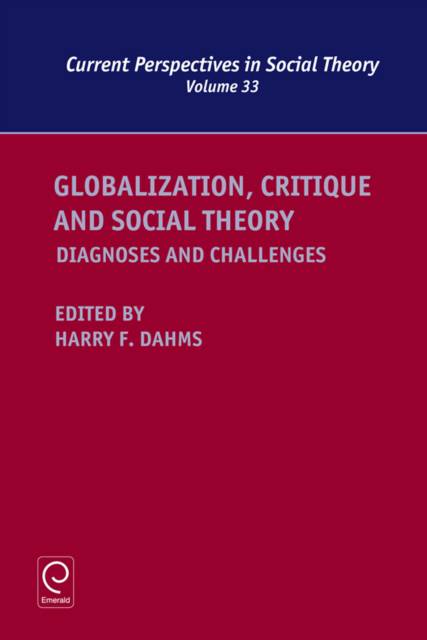
- Afhalen na 1 uur in een winkel met voorraad
- Gratis thuislevering in België vanaf € 30
- Ruim aanbod met 7 miljoen producten
- Afhalen na 1 uur in een winkel met voorraad
- Gratis thuislevering in België vanaf € 30
- Ruim aanbod met 7 miljoen producten
Zoeken
Globalization, Critique and Social Theory
Diagnoses and Challenges
€ 142,95
+ 285 punten
Omschrijving
In recent years, under the impression and the burden of globalization and neoliberalism, debates about the relationship between the theory and practice of progress - including the theory and practice of social critique - have gone through an unexpected and momentous revival, renewal and rejuvenation. This is due in large part to the proliferation of manifest crises in the early years of the twenty-first century. The terrorist attacks in September of 2001, the financial crisis of 2008 that spawned the Great Recession, the Euro crisis that began in fall 2010 - these events provided glimpses of the existing system of political economy, and opportunities to begin to grasp and reveal the ongoing reconstruction of business-labor-government relations in the early 21st century. Yet, in a variety of ways, the notions that theories and practices of rigorous social critique in and of modern societies could become outdated, or that they were based on a categorical misunderstanding of the nature of social, economic, political and cultural life in the modern world, were symptomatic of an ongoing reconfiguration of the system of political economy itself.
Specificaties
Betrokkenen
- Uitgeverij:
Inhoud
- Aantal bladzijden:
- 320
- Taal:
- Engels
- Reeks:
- Reeksnummer:
- nr. 33
Eigenschappen
- Productcode (EAN):
- 9781785602474
- Verschijningsdatum:
- 16/11/2015
- Uitvoering:
- Hardcover
- Formaat:
- Genaaid
- Afmetingen:
- 155 mm x 231 mm
- Gewicht:
- 589 g

Alleen bij Standaard Boekhandel
+ 285 punten op je klantenkaart van Standaard Boekhandel
Beoordelingen
We publiceren alleen reviews die voldoen aan de voorwaarden voor reviews. Bekijk onze voorwaarden voor reviews.










